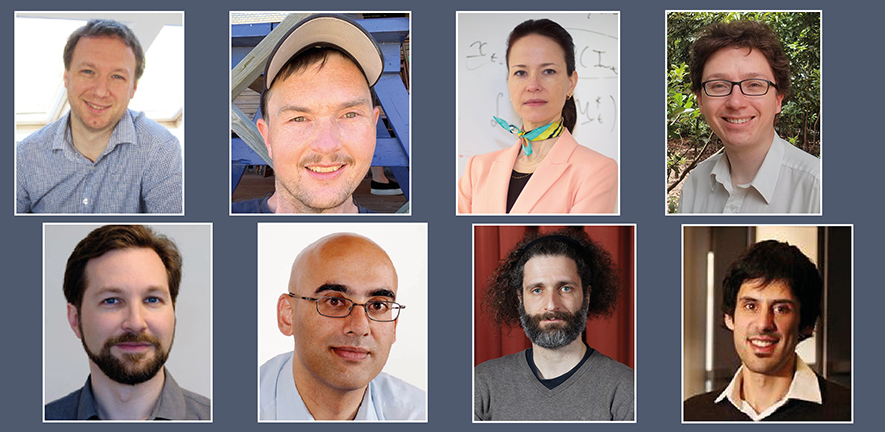
Submitted by Rachel Gardner on Wed, 15/06/2022 - 15:35
Congratulations to the eight members of this Department who have been promoted!
The University runs a rigorous and competitive Senior Academic Promotion process. This usually takes place annually – but did not do so last year because of the pandemic. We are therefore delighted that in the 2021-22 process, eight of our colleagues have been promoted. As a result, we have seven new professors in the Department and one new Principal Research Associate.
Our new professors are:
Tim Jones
Tim's research focuses on Computer Architecture and Compilation, specifically on extracting the many different forms of parallelism from applications (e.g. thread-level, data-level, memory-level) to increase performance and address energy-efficiency and reliability challenges within compilers, binary translators and microarchitectures. Tim is also involved in Department outreach activities, including running the annual Sutton Trust / University of Cambridge Computer Science Summer School.
Robert Watson
Robert is involved in the Security, Networks and Operating Systems, and Computer Architecture research groups and leads projects spanning computer architecture, compilers, program analysis, program transformation, operating systems, networking and security. He is co-PI of the CHERI project, a pioneering new approach to computer processor security that has been developed in collaboration with Arm and other industry leaders, and is now at the forefront of the UK government's Digital Security by Design initiative.
Nic Lane
Nic studies the design, architecture and algorithms of scalable and robust end-to-end machine learning (ML) systems. His research interests drive towards the development of new forms of ML systems that are revolutionary in how they leverage multi-modal data (e.g., speech, vision, location, inertial information) to infer and reason over complex real-world situations — while simultaneously, maintaining extreme levels of systems flexibility (e.g., distributed execution, adaptation) and efficiency (e.g., compute, memory).
Anil Madhavapeddy
Anil researches topics related to computer systems and programming language design and implementation. He is a long-time contributor to projects including OCaml, OpenBSD, Docker, Horde and Xen. He is also a founding Director of the Cambridge Centre for Carbon Credits, which is working to create a trusted decentralised marketplace where purchasers of carbon credits can confidently and directly fund trusted nature-based projects that ties together corporate funders to conservationists via automated and transparent global oracles.
Amanda Prorok
The research in Amanda's lab focuses on multi-agent and multi-robot systems with the aim of finding new ways of coordinating artificially intelligent agents (e.g., robots, vehicles, machines) to achieve common goals in shared physical and virtual spaces. This research brings in methods from machine learning, planning, and control, and has numerous applications, including automated transport and logistics, environmental monitoring, surveillance, and search.
Jamie Vicary
Jamie's work is on higher category theory and its applications in computer science and mathematics, particularly in areas related to quantum structures. He is a Royal Society University Research Fellow in the Programming, Logic and Semantics research group here.
Andreas Vlachos
Andreas focuses on Natural Language and Information Processing research. His current projects include dialogue modelling, automated fact checking and imitation learning. He has also worked on semantic parsing, natural language generation and summarization, language modelling, information extraction, active learning, clustering and biomedical text mining.
In addition, one Senior Research Fellow Fellow has been promoted to Principal Research Associate.
Dr Jat Singh leads the Compliant and Accountable Systems research group, which considers the mechanisms by which technology can be better designed, engineered and deployed to accord with legal and regulatory concerns. In a current project supported by the Information Commissioner’s Office, the Internet of Stings, the group is investigating what happens to all the personal information our smart devices collect from us and whether it is always used in ways that comply with privacy regulations and the law.
Above, from left to right, top: Tim Jones, Nic Lane, Amanda Prorok, Jamie Vicary. Below: Robert Watson, Anil Madhavapeddy, Andreas Vlachos, Jat Singh.

